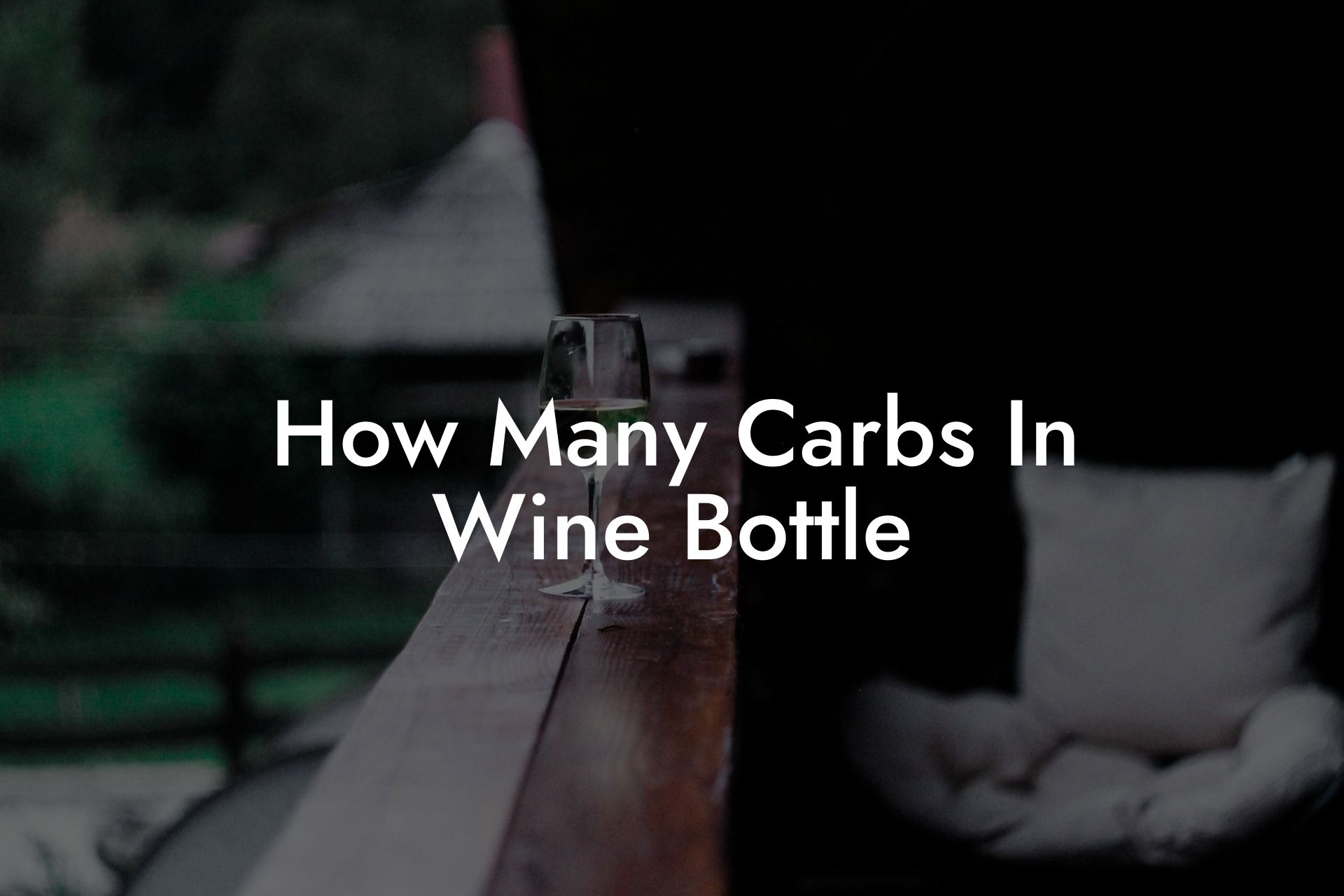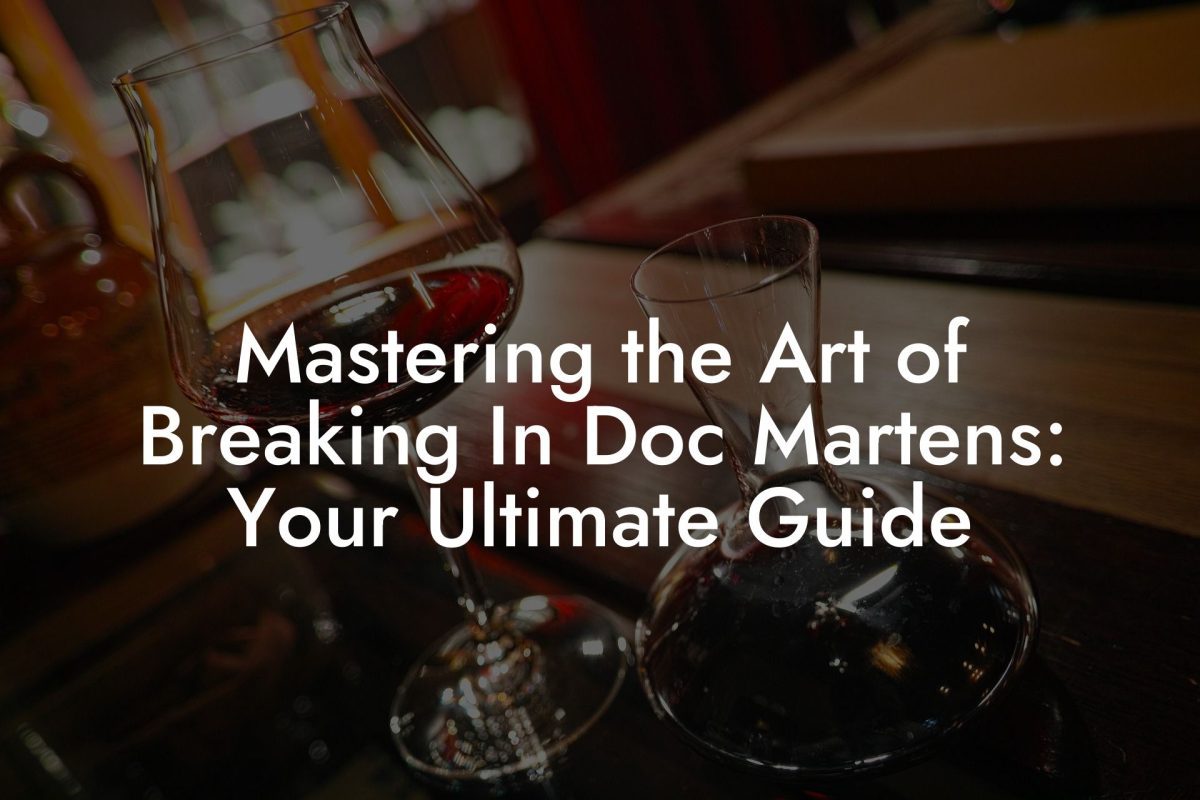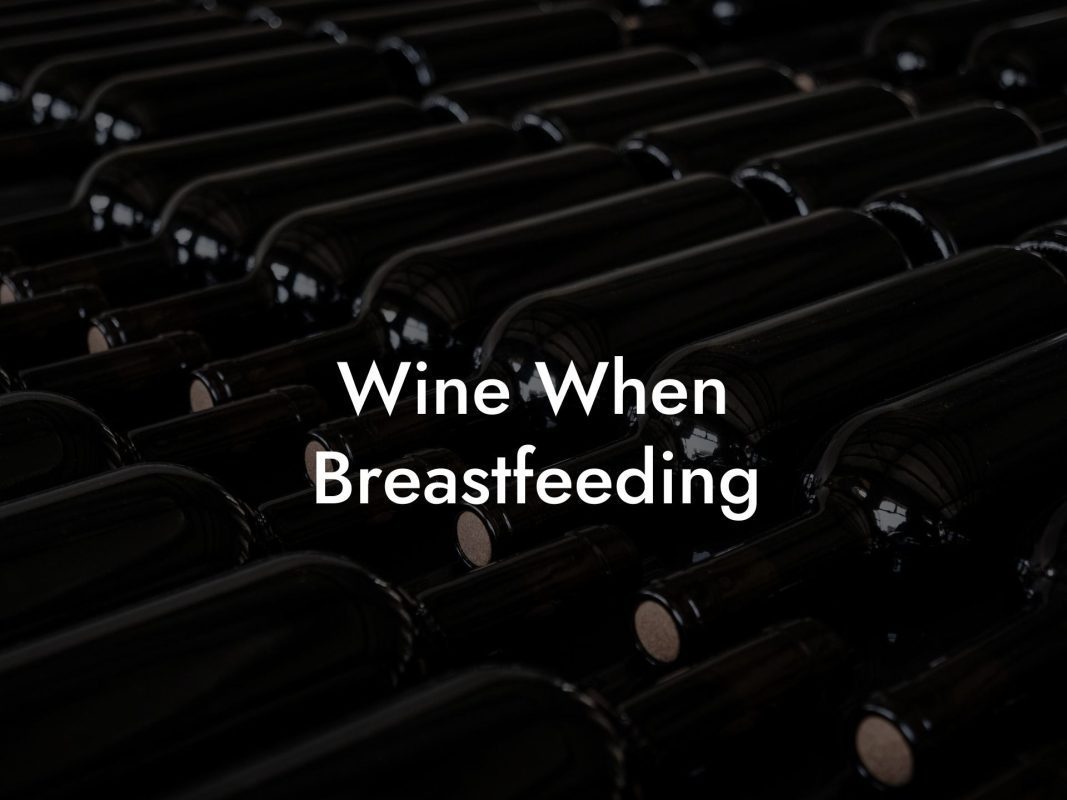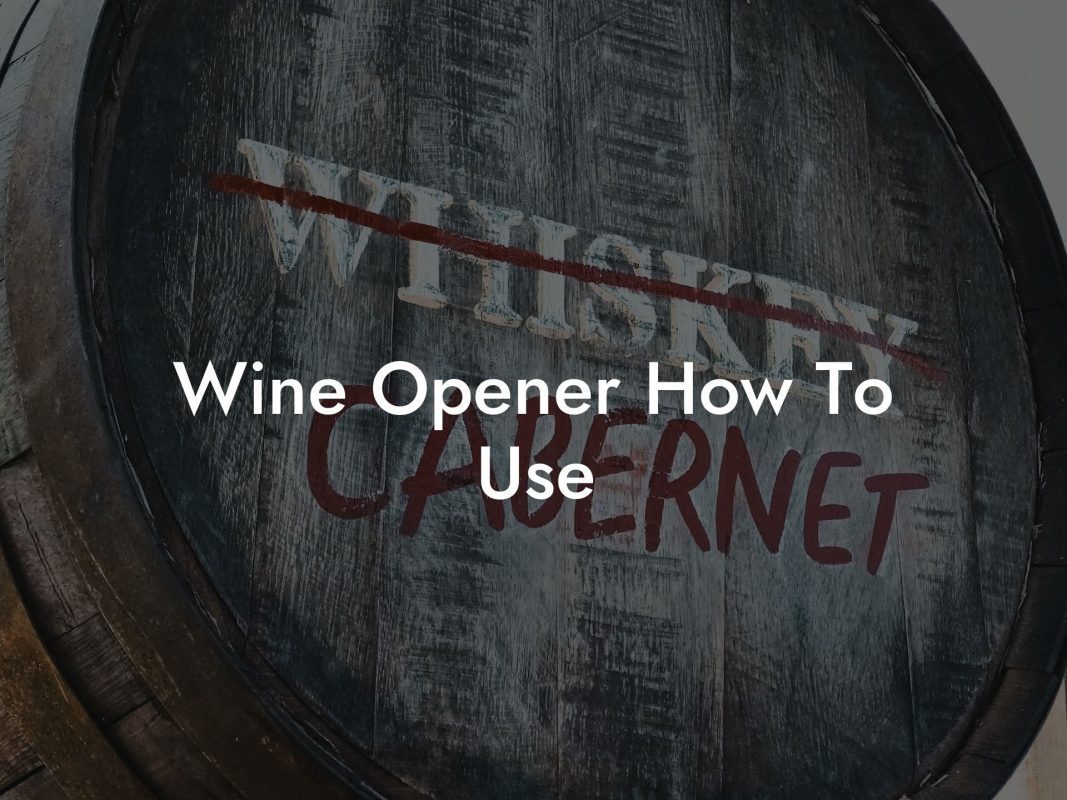Wine enthusiasts, welcome to the Black Wine Club! We're here to help you navigate the world of wine, and today, we're tackling a question that often comes up when health-conscious wine lovers discuss their favorite drink: How many carbs are in a wine bottle? If you're watching your carb intake or simply want to learn more about wine, the answer will surprise you! So, sit back, sip your favorite vino, and let's dive in.
How Many Carbs In Wine Bottle Table of Contents
Understanding Carbs in Wine
Carbohydrates provide energy and fuel for our bodies, but not all carbs are created equal. Simple carbs (found in sugar and processed foods) can cause weight gain and blood sugar fluctuations, while complex carbs (found in whole grains and legumes) provide sustained energy. Wine contains simple carbs in the form of sugars.
Impact on Your Health and Diet
If you're following a low-carb or keto diet or monitoring your blood sugar levels, understanding the carb content in wine is essential. Drinking wine in moderation is generally considered safe and may even offer health benefits like reducing the risk of heart disease. However, excessive alcohol consumption can lead to weight gain and other health issues. While wine contains fewer carbs than beer, it's still important to factor it into your daily carb limit.
Do You Want to Win a Free Bottle of Wine?
Don't miss out on the opportunity to win a free bottle of wine every week.
Enter our weekly prize draw today!
Factors Affecting Carbs in Wine
The carb content of wine can vary depending on several factors:
- Type of wine: Red, white, and sparkling wines have different carb levels. Generally, red wines have slightly more carbs than white wines.
- Sugar content: The amount of residual sugar (RS) in wine will determine its carb content. Dry wines have less sugar than sweet wines.
- Alcohol level: The higher the alcohol content, the fewer carbs in the wine. This is because alcohol is created from the fermentation of sugar, and a high-alcohol wine has less sugar left in it.
Average Carb Counts in Wine Bottles
The following are approximate carb counts for different types of standard 750ml wine bottles:
- Dry white wine (such as Sauvignon Blanc or Chardonnay): 5-10 grams of carbs
- Sweet white wine (like Riesling or Moscato): 20-30 grams of carbs
- Dry red wine (such as Cabernet Sauvignon or Pinot Noir): 7-10 grams of carbs
- Sweet red wine (like Port or some dessert wines): up to 100 grams of carbs
- Sparkling wine (like Champagne or Prosecco): 10-12 grams of carbs
- Rosé wine: around 7-15 grams of carbs
How Many Carbs In Wine Bottle Example:
Imagine you're about to attend a wine tasting event where you'll sample a selection of wines, including some fantastic reds and whites. You're currently following a low-carb diet and want to ensure that your carb intake stays within a reasonable limit. To help you make informed decisions, you'll remember that dry wines are the best option, with Sauvignon Blanc and Chardonnay containing fewer carbs than other options. While it's still vital to moderate your alcohol consumption, at least you'll be more aware of how to choose wines that align with your dietary goals.
Now that you're armed with the knowledge of wine's carb content, you can make informed choices on your next wine adventure with Black Wine Club. Enjoy your wine and always remember to drink responsibly. If you found this article helpful, don't forget to share it with fellow wine lovers and explore other fantastic guides on Black Wine Club. Because life is too short to drink bad wine, and we're here to make sure you never have to. Cheers to that!
Do You Want to Win a Free Bottle of Wine?
Don't miss out on the opportunity to win a free bottle of wine every week.
Enter our weekly prize draw today!












